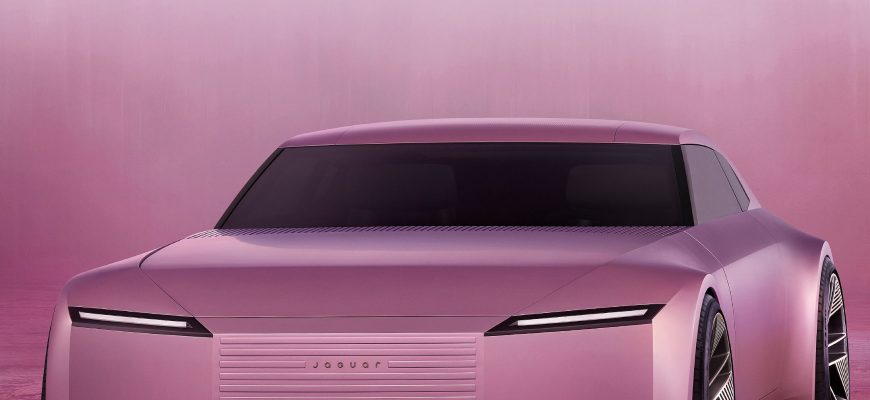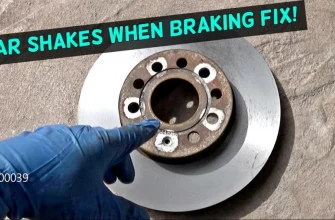The automotive landscape is rapidly evolving․ By 2025, several key trends will dominate conversations․ Here’s a glimpse:
- 1․ Solid-State Batteries: Game Changer
- 2․ Widespread Autonomous Driving (Level 3/4)
- 3․ Software-Defined Vehicles (SDVs)
- 4․ Bi-Directional Charging & V2G
- 5․ Sustainable Materials & Manufacturing
- 6․ Hyper-Personalization & Connectivity
- 7․ Subscription-Based Features
- 8․ The Rise of the Micro-Mobility Ecosystem
- 9․ Cybersecurity Takes Center Stage
- 10․ The Changing Dealership Experience
- 11․ Regulatory Landscape Catches Up
- 12․ The Redefinition of Car Ownership
- The Impact on Consumers
- Opportunities for Businesses
- Challenges and Considerations
- Beyond 2025: The Long-Term Vision
1․ Solid-State Batteries: Game Changer
Expect significant advancements in battery technology․ Solid-state batteries promise increased energy density, faster charging times, and enhanced safety compared to lithium-ion․ This translates to longer ranges and quicker refueling for EVs․
2․ Widespread Autonomous Driving (Level 3/4)
While fully autonomous vehicles might not be ubiquitous, Level 3 and 4 autonomy will become more common․ This means cars can handle most driving situations, requiring driver intervention only in specific circumstances․ Think highway driving and automated parking․
3․ Software-Defined Vehicles (SDVs)
Cars will increasingly be defined by their software․ Over-the-air updates will become standard, allowing manufacturers to add new features, improve performance, and fix bugs remotely․ This creates a more dynamic and personalized driving experience․
4․ Bi-Directional Charging & V2G
Electric vehicles will evolve beyond simply consuming electricity․ Bi-directional charging will allow EVs to send power back to the grid (Vehicle-to-Grid or V2G)․ This can help stabilize the grid and potentially earn EV owners money․
5․ Sustainable Materials & Manufacturing
Environmental concerns will drive the adoption of sustainable materials in vehicle construction․ Expect increased use of recycled plastics, plant-based materials, and more eco-friendly manufacturing processes․
6․ Hyper-Personalization & Connectivity
Cars will become even more connected and personalized․ Expect advanced infotainment systems, personalized driving profiles, and seamless integration with other devices and services․ Voice assistants and AI will play a bigger role․
7․ Subscription-Based Features
Manufacturers will likely offer more features as subscriptions․ Heated seats, advanced driver-assistance systems (ADAS), and even increased horsepower could be available on a monthly or annual basis;
8․ The Rise of the Micro-Mobility Ecosystem
While larger vehicles evolve, so too will micro-mobility solutions․ Expect more sophisticated electric scooters, bikes, and other small-format vehicles integrated into urban transport networks․ These will be increasingly connected and share data with larger vehicles and city infrastructure․
9․ Cybersecurity Takes Center Stage
With increased connectivity and software dependence, cybersecurity will become paramount․ Robust security systems will be essential to protect vehicles from hacking and data breaches․ Expect ongoing development and updates to combat emerging threats․
10․ The Changing Dealership Experience
The traditional car dealership model will continue to evolve․ Online sales, virtual reality showrooms, and direct-to-consumer models will gain traction․ Dealerships will likely focus more on service, maintenance, and providing personalized experiences․
11․ Regulatory Landscape Catches Up
Governments worldwide will be working to update regulations to address the new technologies․ This includes standards for autonomous driving, cybersecurity, and the use of sustainable materials․ Clear and consistent regulations are crucial for the industry’s continued growth․
12․ The Redefinition of Car Ownership
Car ownership might not be the only option․ Car-sharing services, subscription models, and autonomous ride-hailing could become more prevalent, especially in urban areas․ This shift could redefine the relationship between people and their vehicles․
2025 promises to be a transformative year for the automotive industry․ These hot topics will shape the future of transportation, impacting everything from vehicle design and manufacturing to the way we interact with our cars․
Staying informed about these emerging trends is crucial for consumers, industry professionals, and policymakers alike․ Understanding the implications of these changes will allow everyone to navigate the evolving automotive landscape effectively․
The Impact on Consumers
For consumers, 2025 will offer a wider range of choices than ever before․ Electric vehicles with longer ranges and faster charging will become more accessible․ Advanced driver-assistance systems will enhance safety and convenience․ However, consumers will also need to adapt to new ownership models, subscription-based features, and the increasing complexity of vehicle technology․
Opportunities for Businesses
The automotive industry is ripe with opportunities for innovation and growth․ Companies that can develop and implement cutting-edge battery technology, autonomous driving systems, and sustainable manufacturing processes will be well-positioned for success․ Furthermore, businesses that can provide seamless connectivity, personalized services, and robust cybersecurity solutions will thrive in the evolving market․
Challenges and Considerations
Despite the exciting advancements, several challenges need to be addressed․ The high cost of electric vehicles remains a barrier for many consumers․ The ethical and legal implications of autonomous driving need careful consideration․ Cybersecurity threats must be constantly mitigated to ensure vehicle safety and data privacy․ Furthermore, the transition to sustainable materials and manufacturing processes requires significant investment and collaboration across the industry․
Beyond 2025: The Long-Term Vision
Looking beyond 2025, the automotive industry will continue to evolve at an accelerating pace․ Fully autonomous vehicles are likely to become a reality, transforming transportation as we know it․ Electric vehicles will become even more efficient and affordable, further reducing our reliance on fossil fuels․ The integration of vehicles with smart cities and the Internet of Things will create a more connected and sustainable future․ The key is proactive adaptation and a willingness to embrace change․
The automotive world of 2025 will be drastically different from what we know today․ Solid-state batteries, advanced autonomy, software-defined vehicles, and a focus on sustainability are just a few of the trends that will reshape the industry․ By understanding these changes, we can prepare for a future where transportation is safer, more efficient, and more environmentally friendly․










Hyper-personalization sounds amazing. A truly customized driving experience is what I want.
Sustainability is key! Glad to see the focus on eco-friendly materials and manufacturing processes.
V2G technology is a game-changer! Imagine getting paid to charge your car. Brilliant!
Subscription-based features… interesting. Hope they are reasonably priced and offer real value.
This is a fantastic overview of the automotive future! Solid-state batteries are definitely something I
Level 3/4 autonomy can
The point about software-defined vehicles is spot on. Over-the-air updates will revolutionize car ownership.